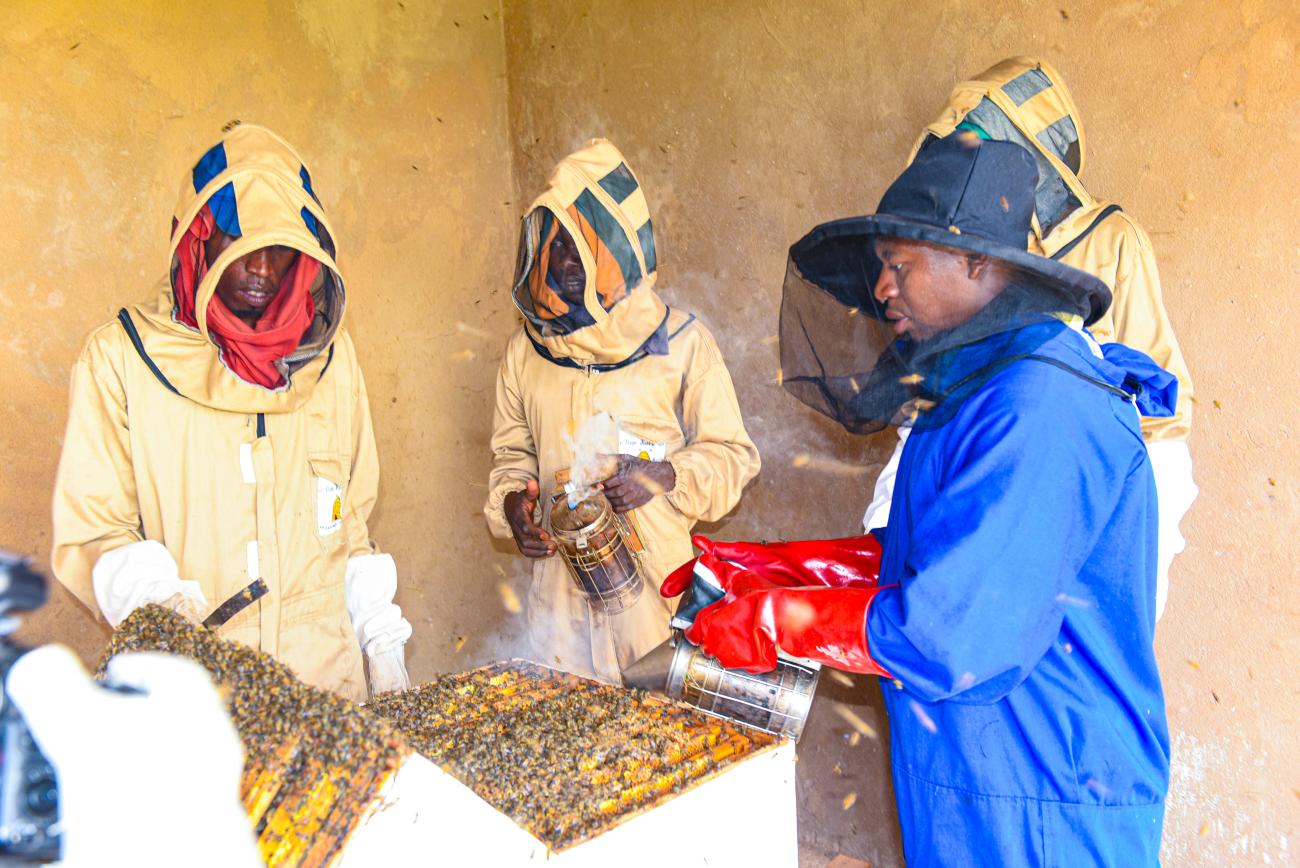CAPACITY BOOST FOR BEEKEEPERS TO IMPROVE THE QUALITY AND STANDARD OF THEIR PRODUCTS
Bee keeping is an important economic activity, that is not only a source of income but also plays a big role in biodiversity and crop yield improvement from pollination of plants, trees, fruits, and crops. However, its productivity needs to be enhanced.
As a remedy, the Food and Agriculture Organization of the United Nations (FAO) in collaboration with the Rwanda Agricultural and Animal Resources Development Board (RAB) and Rwanda Standards Board conducted a series of training for 100 beekeepers.
Trainers focused on key areas of intervention in the entire beekeeping value chain with the aim of meeting national and international quality and safety requirements and standards for honey and other bee products.
The topics ranged from traceability in the beekeeping value chain to the equipment, and machinery used in the beekeeping value chain, the safety of bees, avoiding pests that affect bees, and how to increase, both the quality and quantity of bee products to satisfy market demand.
Celestin Munyankindi is one of the beekeepers from Gicumbi Beekeepers Cooperative (GIBCO) that gained from the training, and he testifies how it has helped him address issues he faced and how the capacity boost has improved his production.
“The training has helped me to improve ways of producing honey from the point of where bees collect honey ingredients to the final product which is honey. The trainers taught us how to take care of the bees and their surroundings and how to improve the quality and standard of products for them to be competitive both on the local and international markets.” Munyankindi Said.
This initiative aims to improve and move the sector from traditional to modern beekeeping practices by ensuring that beekeepers are well equipped with the latest technology and modern beekeeping equipment that will facilitate them to improve the quantity and quality of honey acceptable at the local and international market.





